Cotton is undoubtedly one of the most recognizable plants in the...
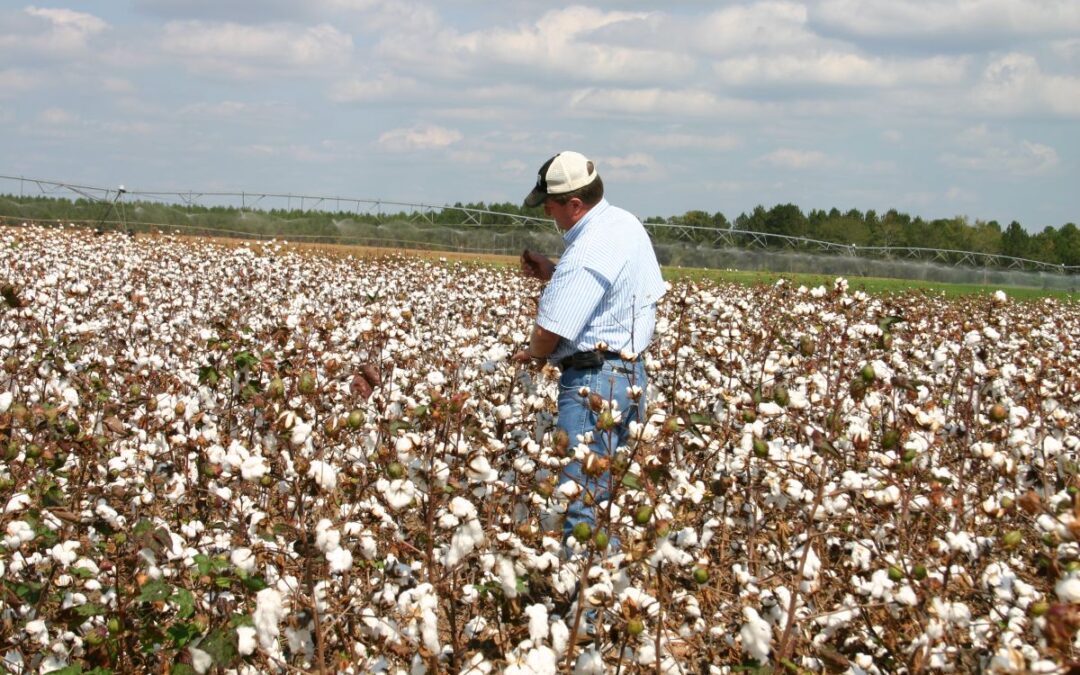

Cotton is undoubtedly one of the most recognizable plants in the...
Auburn-developed method could advance efforts to breed a drought-tolerant peanut Auburn University researchers have devised a new means of measuring the physiological characteristics of peanut plants that should prove to be instrumental in speeding the breeding...
When can there be too many deer even for a hunting enthusiast? When that same enthusiast is a row-crop farmer, and the deer are using their fields as an all-you-can-eat buffet. While deer grazing on crops has been a consistent problem for decades, it has escalated in...
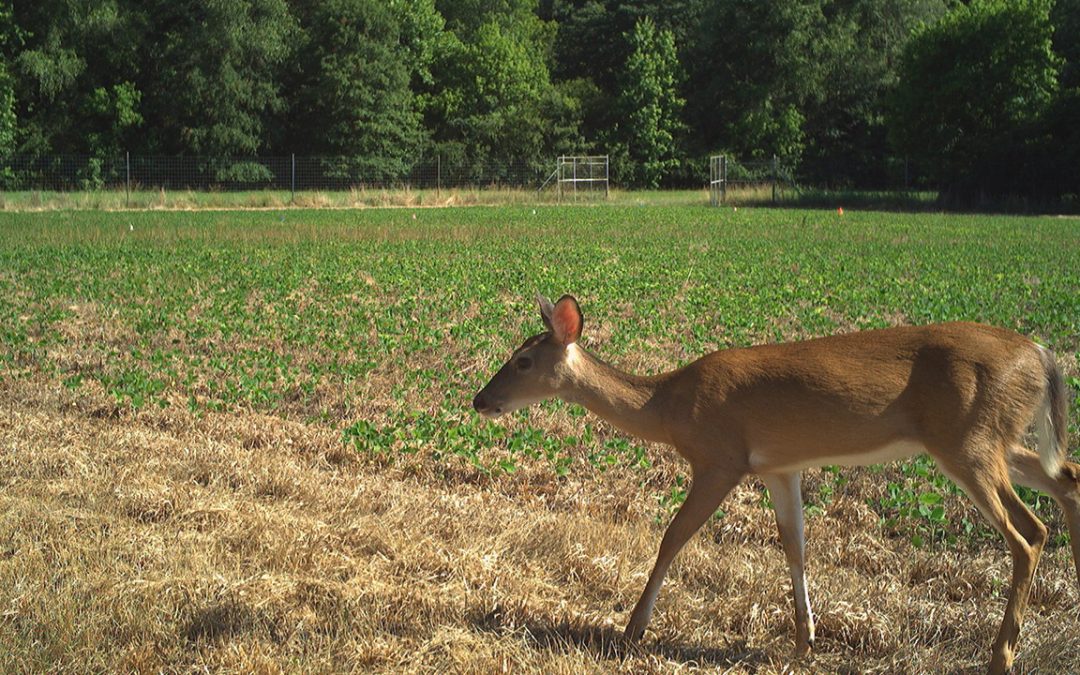
When can there be too many deer even for a hunting enthusiast? When that same enthusiast is a row-crop farmer, and the deer are using their fields as an all-you-can-eat...

Two College of Agriculture faculty members were announced among Auburn University’s five 2024 Alumni Professors Sept. 20. Eve Brantley, a professor and associate...
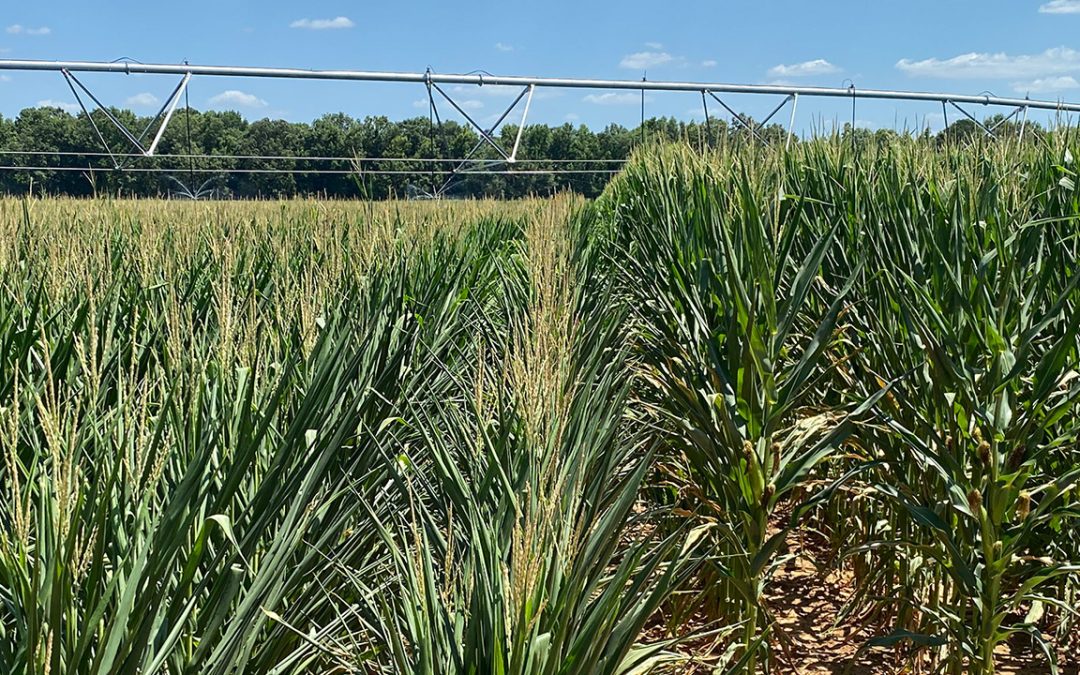
The line from the classic musical “Oklahoma” that refers to corn being “as high as an elephant’s eye” would not apply to some of the new hybrids becoming available to...
Three College of Agriculture faculty members have been awarded promotions, and one of the three also has been recognized university-wide for his exemplary support of undergraduate student researchers. The latter is Sushil Adhikari in the Department of Biosystems...
By Paul Hollis Auburn is joining with three other Southeastern universities in a $5 million research effort to help ensure water for agricultural production while maintaining healthy rivers and springs. The project—funded by a five-year grant from the United States...
By Steve Li Cover crops can provide many benefits to peanut and cotton rotations in terms of suppressing weeds, conserving soil moisture for planting, increasing soil organic matter, reducing soil erosion and more. In fields where residual herbicides are used during...
By Ravali Bheemanathini Alabama has enough miles of rivers and streams to circle the earth five times, and for the past 25 years, a devoted group of citizen volunteers has worked to protect these bountiful water resources. The group is Alabama Water Watch, and as it...
By Austin Hagan Seed accounts for up to 20 percent of the total variable production cost for peanut producers, especially for larger-seeded cultivars such as Georgia-06. One option for saving money is to reduce seeding rates, but can this be done without negatively...
Beth Guertal, a professor in Auburn University’s Department of Crop, Soil and Environmental Sciences, has been voted president-elect of the Crop Science Society of America, or CSSA, and will advance to the role of president at the organization’s 2018 meetings in...
One of the earliest undergraduate degree programs available to students at what today is Auburn University will return fall semester 2017 when the College of Agriculture begins offering a Bachelor of Science in Agricultural Science. Auburn’s Department of Horticulture...
By JAMIE CREAMER April 1 marked the launch of a free, online crop management tool designed to help cotton producers in Alabama and the Southeast get the upper hand on thrips, the region’s most consistent pests of seedling cotton. Developed at North Carolina State...
A College of Agriculture master’s student and a recent graduate have been named 2017 recipients of the National Science Foundation Graduate Research Fellowship. The two—Edna Fernandez-Figueroa and April Maxwell—are among a record-setting 14 Auburn University students...
By Eddie McGriff Henderson Farms in Madison, Alabama, topped the 2016 National Corn Growers Association state contest for Alabama in the irrigated (305.7 bushels per acre) and the non-irrigated categories (232.7 bushels per acre). Mike Henderson along with son, Chad,...
Three Auburn University researchers will be among more than 60 academic and governmental researchers to participate in the SEC Academic Conference to be held this month. Eve Brantley, Extension specialist and associate professor, Department of Crop, Soil and...
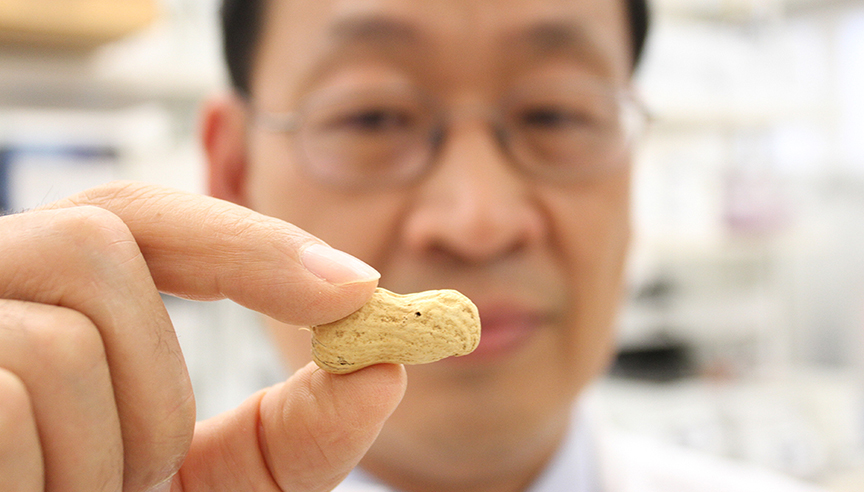
Auburn University might be relatively new to the peanut breeding business, but its just-released runner peanut variety is already winning accolades for its high yields, resistance to disease and healthy traits. The new release is the product of a peanut breeding program operated jointly by the Department of Crop, Soil and Environmental Sciences and USDA’s National Peanut Research Lab.
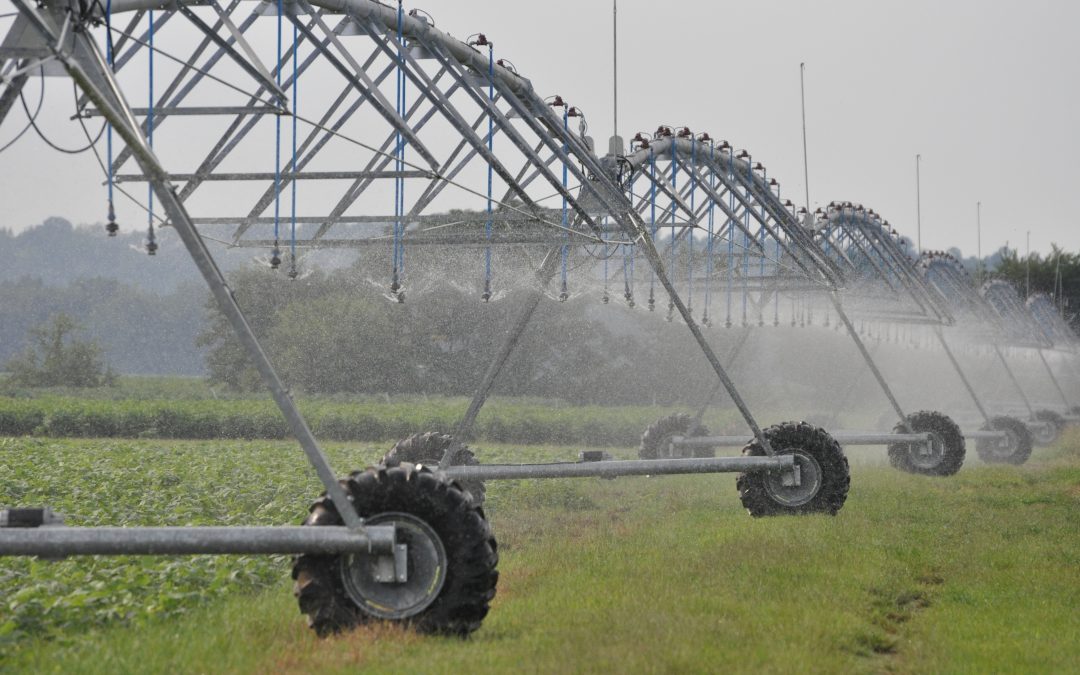
In Alabama, farmers often say that, during the summer, they’re always 10 days away from being in a drought. So this past year, when some parts of the state went for more than 70 consecutive days without measurable rainfall, many—including farmers, municipalities and others who rely on a plentiful water supply—were unprepared.
Austin Hagan, professor in the Department of Entomology and Plant Pathology and Alabama Extension plant pathologist, will discuss the results of a two-year study on developing integrated strategies for managing target spot in cotton in a webinar scheduled for Monday,...
The Alabama Precision Agriculture Extension Program will be presenting several precision agriculture workshops in 2017. The following are topics and other information about the programs. Use of Soil Sensors for Irrigation Scheduling. This workshop will discuss the...

Auburn University is joining forces with the world’s leading sports turf consultancy to initiate research and development programs throughout the U.S. sports surface market. The agreement with the STRI Group will focus primarily on expanding the U.S. soccer industry, as well as conducting surfaces research in other sports including golf, football, baseball and equestrian.
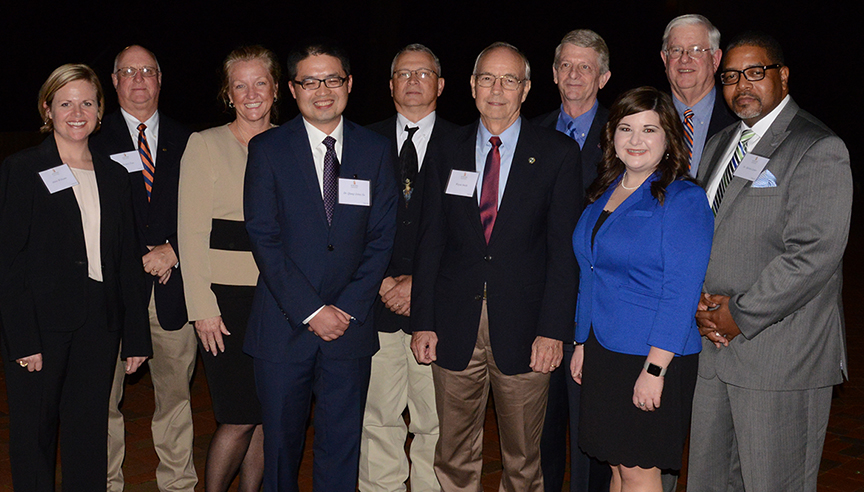
Ten successful professionals who hold academic degrees from Auburn University’s College of Agriculture have been selected as the college’s most outstanding alumni for 2017. The 10 include the recipient of the 2017 Alumni Service Award and nine Alumni Award winners who were chosen by and represent the academic units and programs from which they earned their degrees.
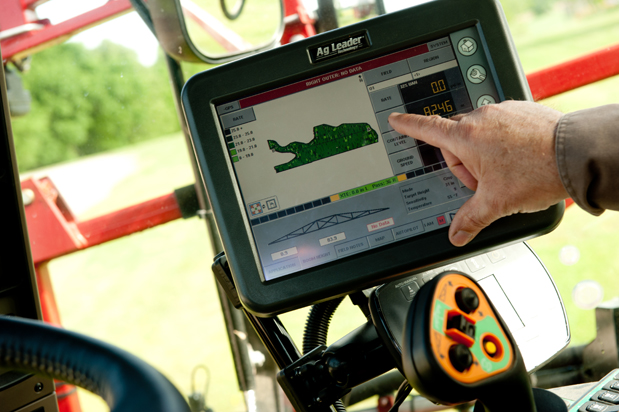
How big is data in U.S. agriculture? Consider that one acre of corn can generate seven gigabytes of data. With approximately 93 million acres of the crop currently in production, that’s 145 million DVDs filled with information—from just one crop.
The Auburn University Agricultural Alumni Association will honor five men who have had a major impact on Alabama agriculture when it hosts the 2017 Alabama Agriculture Hall of Honor banquet Feb. 9 at the Auburn Marriott Opelika Hotel and Conference Center. The five...
Henry Fadamiro has been tapped to serve as associate dean for research in Auburn University’s College of Agriculture and as associate director of the Alabama Agricultural Experiment Station, effective Jan. 1, 2017. He has served as the college’s assistant dean and...
by Joyce Tredaway Ducar The best yields I ever made in wheat averaged 107 bushels per acre, and they were made when I did just a few things differently than in the previous year. First, I controlled my weeds, particularly ryegrass. We have many options to use these...
Three College of Agriculture faculty members have been awarded promotions, and one of the three also has been recognized university-wide for his exemplary support of undergraduate student researchers. The latter is Sushil Adhikari in the Department of Biosystems...
By Paul Hollis Auburn is joining with three other Southeastern universities in a $5 million research effort to help ensure water for agricultural production while maintaining healthy rivers and springs. The project—funded by a five-year grant from the United States...
By Steve Li Cover crops can provide many benefits to peanut and cotton rotations in terms of suppressing weeds, conserving soil moisture for planting, increasing soil organic matter, reducing soil erosion and more. In fields where residual herbicides are used during...
By Ravali Bheemanathini Alabama has enough miles of rivers and streams to circle the earth five times, and for the past 25 years, a devoted group of citizen volunteers has worked to protect these bountiful water resources. The group is Alabama Water Watch, and as it...
By Austin Hagan Seed accounts for up to 20 percent of the total variable production cost for peanut producers, especially for larger-seeded cultivars such as Georgia-06. One option for saving money is to reduce seeding rates, but can this be done without negatively...
Beth Guertal, a professor in Auburn University’s Department of Crop, Soil and Environmental Sciences, has been voted president-elect of the Crop Science Society of America, or CSSA, and will advance to the role of president at the organization’s 2018 meetings in...
One of the earliest undergraduate degree programs available to students at what today is Auburn University will return fall semester 2017 when the College of Agriculture begins offering a Bachelor of Science in Agricultural Science. Auburn’s Department of Horticulture...
By JAMIE CREAMER April 1 marked the launch of a free, online crop management tool designed to help cotton producers in Alabama and the Southeast get the upper hand on thrips, the region’s most consistent pests of seedling cotton. Developed at North Carolina State...
A College of Agriculture master’s student and a recent graduate have been named 2017 recipients of the National Science Foundation Graduate Research Fellowship. The two—Edna Fernandez-Figueroa and April Maxwell—are among a record-setting 14 Auburn University students...
By Eddie McGriff Henderson Farms in Madison, Alabama, topped the 2016 National Corn Growers Association state contest for Alabama in the irrigated (305.7 bushels per acre) and the non-irrigated categories (232.7 bushels per acre). Mike Henderson along with son, Chad,...
Three Auburn University researchers will be among more than 60 academic and governmental researchers to participate in the SEC Academic Conference to be held this month. Eve Brantley, Extension specialist and associate professor, Department of Crop, Soil and...

Auburn University might be relatively new to the peanut breeding business, but its just-released runner peanut variety is already winning accolades for its high yields, resistance to disease and healthy traits. The new release is the product of a peanut breeding program operated jointly by the Department of Crop, Soil and Environmental Sciences and USDA’s National Peanut Research Lab.

In Alabama, farmers often say that, during the summer, they’re always 10 days away from being in a drought. So this past year, when some parts of the state went for more than 70 consecutive days without measurable rainfall, many—including farmers, municipalities and others who rely on a plentiful water supply—were unprepared.
Austin Hagan, professor in the Department of Entomology and Plant Pathology and Alabama Extension plant pathologist, will discuss the results of a two-year study on developing integrated strategies for managing target spot in cotton in a webinar scheduled for Monday,...
The Alabama Precision Agriculture Extension Program will be presenting several precision agriculture workshops in 2017. The following are topics and other information about the programs. Use of Soil Sensors for Irrigation Scheduling. This workshop will discuss the...

Auburn University is joining forces with the world’s leading sports turf consultancy to initiate research and development programs throughout the U.S. sports surface market. The agreement with the STRI Group will focus primarily on expanding the U.S. soccer industry, as well as conducting surfaces research in other sports including golf, football, baseball and equestrian.

Ten successful professionals who hold academic degrees from Auburn University’s College of Agriculture have been selected as the college’s most outstanding alumni for 2017. The 10 include the recipient of the 2017 Alumni Service Award and nine Alumni Award winners who were chosen by and represent the academic units and programs from which they earned their degrees.

How big is data in U.S. agriculture? Consider that one acre of corn can generate seven gigabytes of data. With approximately 93 million acres of the crop currently in production, that’s 145 million DVDs filled with information—from just one crop.
The Auburn University Agricultural Alumni Association will honor five men who have had a major impact on Alabama agriculture when it hosts the 2017 Alabama Agriculture Hall of Honor banquet Feb. 9 at the Auburn Marriott Opelika Hotel and Conference Center. The five...
Henry Fadamiro has been tapped to serve as associate dean for research in Auburn University’s College of Agriculture and as associate director of the Alabama Agricultural Experiment Station, effective Jan. 1, 2017. He has served as the college’s assistant dean and...
by Joyce Tredaway Ducar The best yields I ever made in wheat averaged 107 bushels per acre, and they were made when I did just a few things differently than in the previous year. First, I controlled my weeds, particularly ryegrass. We have many options to use these...